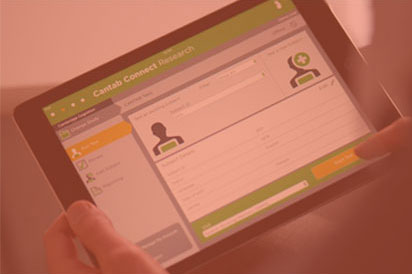Cambridge Cognition Holdings PLC (LON:COG) Chief Executive Officer Dr Steven Powell caught up with DirectorsTalk for an exclusive interview to discuss their full year results for the year ended 31st December 2017
Q1: Now, you’ve just released your full year results, can you talk us through the highlights please?
A1: Yes, certainly. So, overall, for 2017, we saw a very small 2% reduction in top line revenues and this is mainly due to a couple of very substantial contract wins which inflated 2016 a little and overall, what that does is masks the underlying growth in revenues. So, year-on-year, we’re still looking at a 13% compound annual growth rate and significantly, an underlying increase of about 33% in service revenues as well. So, the underlying trend is up and we’re seeing some very interesting prospects starting to come through into 2018.
Q2: As you said, service revenues are improving markedly, would you expect this trend to continue?
A2: Absolutely, so service revenues encapsulate a number of different aspects of our business and in addition to perhaps routine project management revenues. It also covers revenues from wearable technology where we’re typically developing products and projects in collaboration with customers and it also covers a lot of our neural analytical work which we moved into the commercial offer some 2 years ago. So, particularly the technology collaborations and the analytics, we expect to continue to grow and develop and play an ever-increasing part in our revenue going forwards.
Q3: R&D expenditure has increased also, what’s the main reason for this? What’s the background to that?
A3: First and foremost, we recognised there was a requirement to accelerate a number of the ideas that we had in our four key disease areas, mainly Alzheimer’s disease, schizophrenia, depression and Parkinson’s disease, so that we can bring products through at a faster rate. I think we’ve demonstrated over the course of the last 2 years that we have indeed done that.
Moreover, the newer technologies that have emerged outside of the cognitive space such as wearables enable us to take our cognitive testing and move it more and more to near-patient testing rather than it being conducted in controlled clinical environments. This enables pharmaceutical companies and ultimately healthcare partners to be able to deploy that type of testing to get much larger, richer data sets. In simple terms, more information about the patient by testing more frequently so it’s a trend that has been enabled by external technology developments and something that we are using and driving quite hard.
I don’t expect R&D expenditure to continue to rise in multiples of where we are today but certainly, we have an ongoing commitment to R&D and to product innovation and technology innovation.
Q4: What does your strategy as a group look like for the next 12 months and how is the neuroscience market developing?
A4: Neuroscience is developing at a great rate, both with increasing interest in the field with the recognition that there’s a very significant poorly-met medical need which needs to be satisfied so that’s a recognition by our customers and our partners, he pharmaceutical companies. Similarly, there’s an ongoing recognition that we need to do more to be able to monitor patients more closely with approved drugs, as indeed the medical community is looking to do in other disease areas. So, those external drivers are overall pushing our market opportunity along and upwards.
From a Cambridge Cognition perspective, we expect to see continuing growth in the core clinical trial revenues from the pharmaceutical industry but also, as I’ve already said, we expect to see significant increases in the service revenues that come from the service collaborations. We also expect more and more partnerships coming on board which will be based around aspects of our products and technology portfolio.
Q5: I think you’ve already hinted at this but how has trading been in 2018 so far and do you think Cambridge Cognition are well positioned for further growth this year?
A5: Yes, we expect the growth to continue, the growth that we’ve seen in the underlying business over the course of the last 3-4 years, we expect that to continue, not only continue but to accelerate as well.
We stated that we’d started the year with a stronger sales pipeline than we had in the prior year and that’s largely as a result of investment into our commercial team, both in Europe and also in the United States.
We’ve also reported, and I think I referenced these earlier, that a couple of key projects which we were expecting to land in 2017 moved across into 2018 so therefore we started the year positively and we expect it to continue to develop.
It’s still early in the year, of course, but a good start, certainly an improvement over the prior year and we expect that to continue throughout 2018.








































